Massachusetts Sen. Edward Markey and Massachusetts Rep. Joseph P. Kennedy III faced off in the first debate of the 2020 senate race Tuesday.
The hour long debate, hosted by WGBH, was the first meeting between Markey, the incumbent, and his challenger Kennedy. Attorney Shannon Liss-Riordan, who is also running in the democratic primary race, was not present at the debate.
Kennedy has been in the U.S. House of Representatives since 2013, representing the Massachusetts fourth district. He previously worked as a prosecutor in Massachusetts, according to the Boston Globe. He is also the grandson of former U.S. Attorney General Robert F. Kennedy and a great-nephew of President John F. Kennedy.
He is challenging Markey for a senate seat Markey has held since 2013. Markey, a Malden native, was in the U.S. House of Representatives from 1976-2013 before winning the senate seat on his first try.
Kennedy opened the debate by talking about why this race is so important for the Democratic party.
“Given the challenges we face, you have to ensure you’re bringing everything you possibly can to restore power to a Democratic party so that we can actually advance the causes we care about and protect the people we care about,” Kennedy said.
Markey started off by saying he is fighting for the future of young people. Markey, who introduced the Green New Deal with New York Rep. Alexandria Ocasio-Cortez, immediately brought up his record on the environment, as well as the other issues he’s fought for as a U.S. representative and senator, like gun violence and healthcare research.
Kennedy challenged the Democratic parties’ efforts on guns.
“The federal government has not passed meaningful gun legislation in decades,” Kennedy said.
Kennedy also said that the federal government hasn’t passed a transformative bill on environmental issues since The Clean Air Act in 1970, implying that Markey’s environmental record isn’t as accomplished as he leads voters to believe.
Markey defended his efforts on the environment, pointing to 2007 fuel economy standards that Markey said he introduced.
On guns, Markey also pointed to legislation he got passed in December 2019 to have 25 million for the Center for Disease Control to research the causes of gun violence.
In December, Kennedy challenged Markey to support a people’s pledge, which limits the amount of outside spending from third parties a campaign can receive in a race.
The pledge, which Kennedy signed on Dec. 2, stated that if any outside group that runs a TV, radio, digital or print ad benefitting one candidate, that candidate would donate to a charity of the other candidates choosing. Kennedy and Liss-Riordan have signed a people’s pledge while Markey, who has not signed such a pledge, said he believes candidates should welcome positive outside voices and disclosed contributions, according to Boston.com.
“We should not silence these progressive groups, we should celebrate them,” Markey said.
When immigration came up, mediator Margery Eagen said both candidates condemned the Trump administration’s decision to send border patrol agents in sanctuary cities, including Boston, in February 2020. Both candidates went on to talk about their families’ immigrant backgrounds and the need to challenge president Donald Trump on his immigration policies, with Markey saying that they need to fight the Trump administration’s policies in court.
Both candidates believe that it is imperative that troops are removed from the Middle East at a rate that does not jeopardize the gains the U.S. has made on fighting terrorism in there.
Kennedy challenged Markey on his 2002 vote to support sending military forces to Iraq, a vote that Markey said was made based on what he later found out was a lie from former president George W. Bush and others.
“I regret that vote. It was a mistake,” Markey said.
On race, Kennedy said that intentional choices need to be made on local, state and federal levels to repair the legacy of racial discrinination that he said persists in this country. Kennedy said he will adress access to affordable housing, zoning laws and transportation, as he said these are the key issues that stem from deliberate discrimination against people of color.
Markey pointed to legislation he introduced with fellow Massachusetts Sen. Elizabeth Warren to construct 3 million affordable homes in the country as his way of helping historically marginalized people have access to these areas. He also mentioned free college and community college tuition for people of color and low-income citizens.
Markey, like Kennedy, mentioned the need for improvements in the transportation system. Markey also floated the idea that there should be a discussion on reparations for the black community.
Cost and access to housing was also a topic of the debate.
“Literally anywhere I go across this state, housing, cost of housing and access to housing is the number one issue,” Kennedy said.
Kennedy said rent stabilization, or regulating the cost of rent in cities like Boston, should be on the table, and that there is a wide variety of other measures that would be addressed if he wins.
Markey said that instead of enacting state-wide rent laws, he is in favor of allowing communities to create their own rent control laws.
Both candidates believe that the U.S. should move toward getting rid of private insurance in a way that would not be disruptive. Markey said that the country should be moving toward eliminating private insurance over time, while Kennedy said that providing access to care patients needs could be accomplished without private insurance.
Markey pointed to a bill he introduced in 2018 that extended funding to find the cure for Alzheimer’s by 2025.
“Fifteen million baby boomers are going to have Alzheimer’s. Medicare and medicaid bills will be equal to the defense budget. It will bust the entire healthcare system in our country,” Markey said.
Both candidates were asked if they believed Trump was mentally unfit for the presidency and neither candidate would say Trump was unfit for office.
“I don’t think anyone… can evaluate anyone at a distance without examining them,” Markey said.
Kennedy had a similar answer.
“I’m not a doctor and I don’t think I am qualified to make that determination. I’ll leave that to the professionals,” Kennedy said.
Both candidates mentioned term limits as a solution to court packing, or when presidents fill the Supreme Court with justices that have, for the most parts, the same beliefs as them or are members of the same party.
Both candidates said they plan to address student loan debt, with Kennedy saying that debt should be eliminated for a vast majority of students. Markey believes that Massachusetts should have free community college and free public universities.
The next scheduled debate is on March 18 and a third debate is scheduled for Aug. 18. These debates will feature Markey and Kennedy, as well as Liss-Riordan.
The Massachusetts state primary is Sept. 1, 2020.


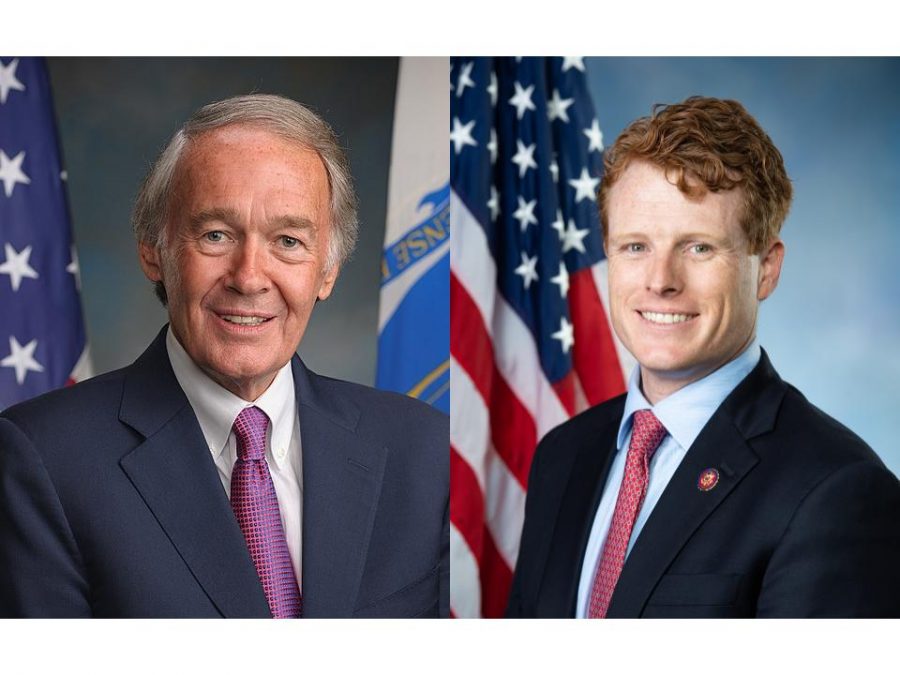
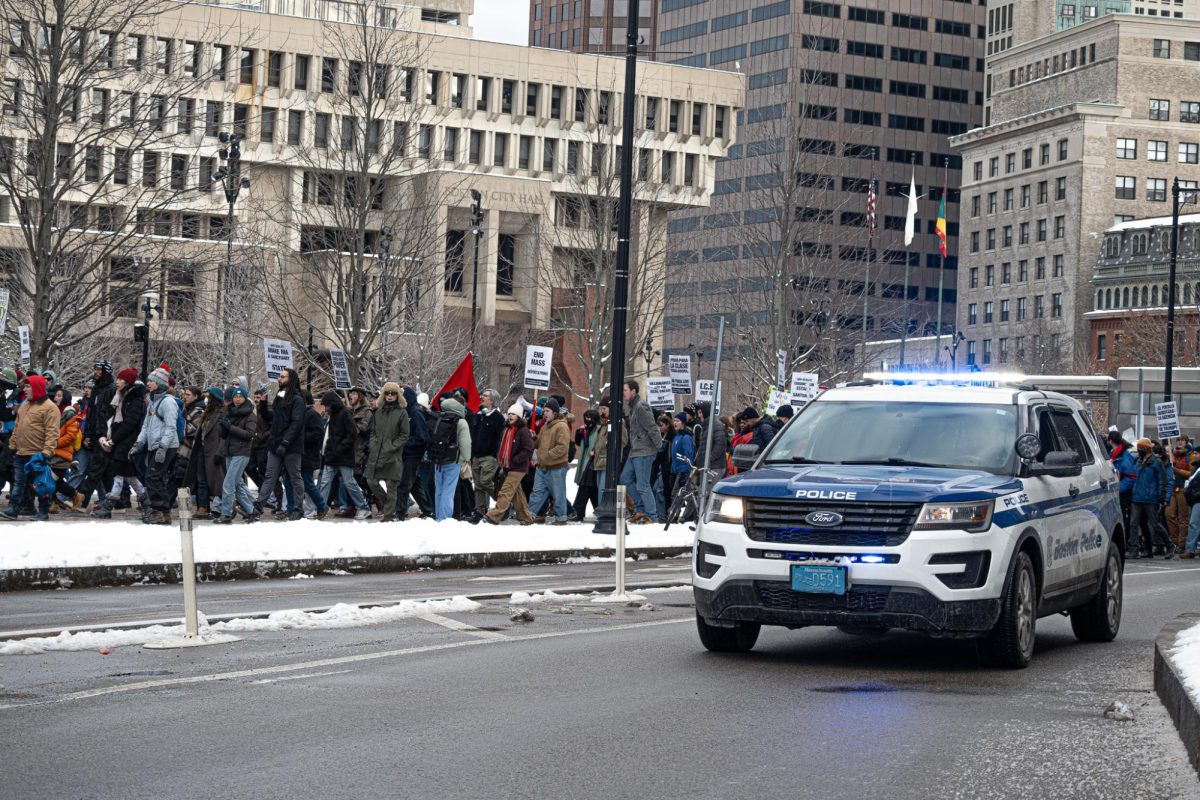


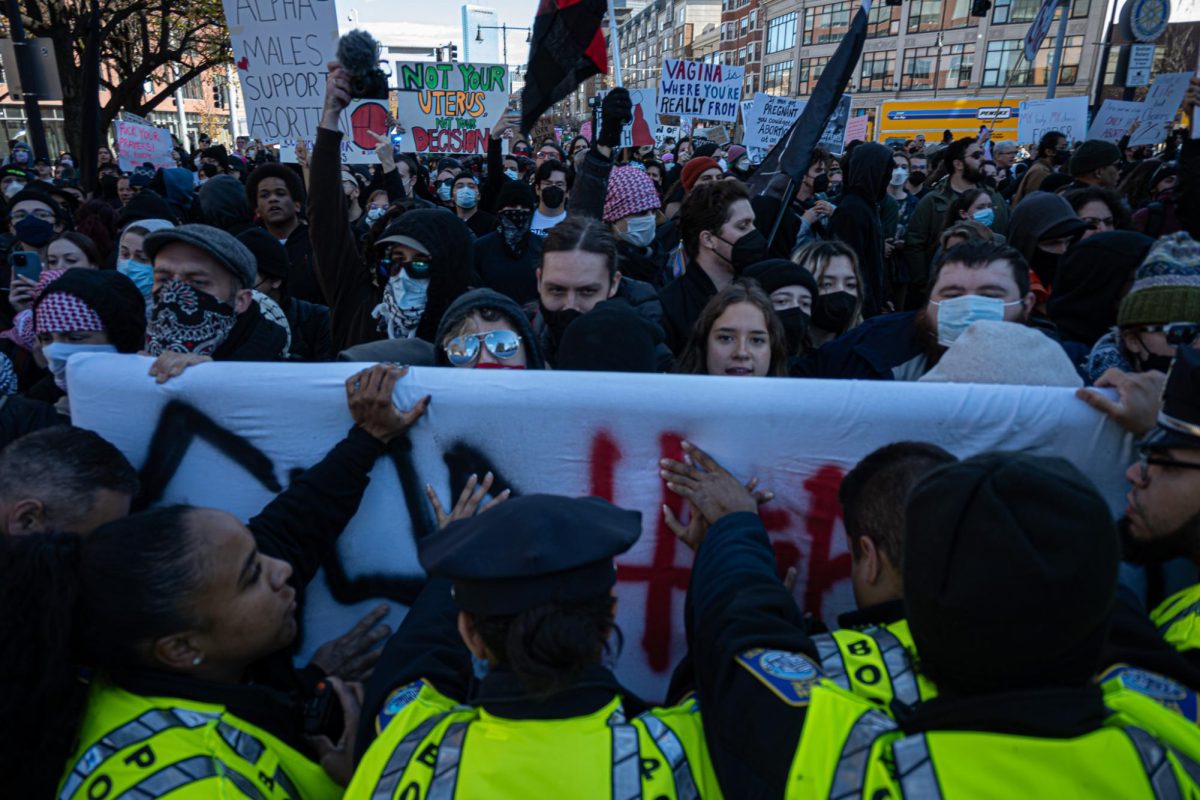
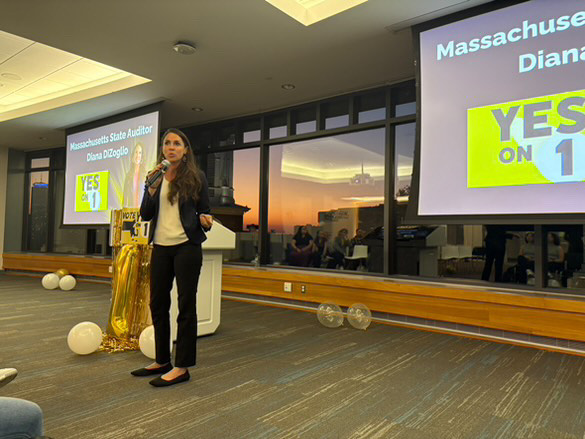
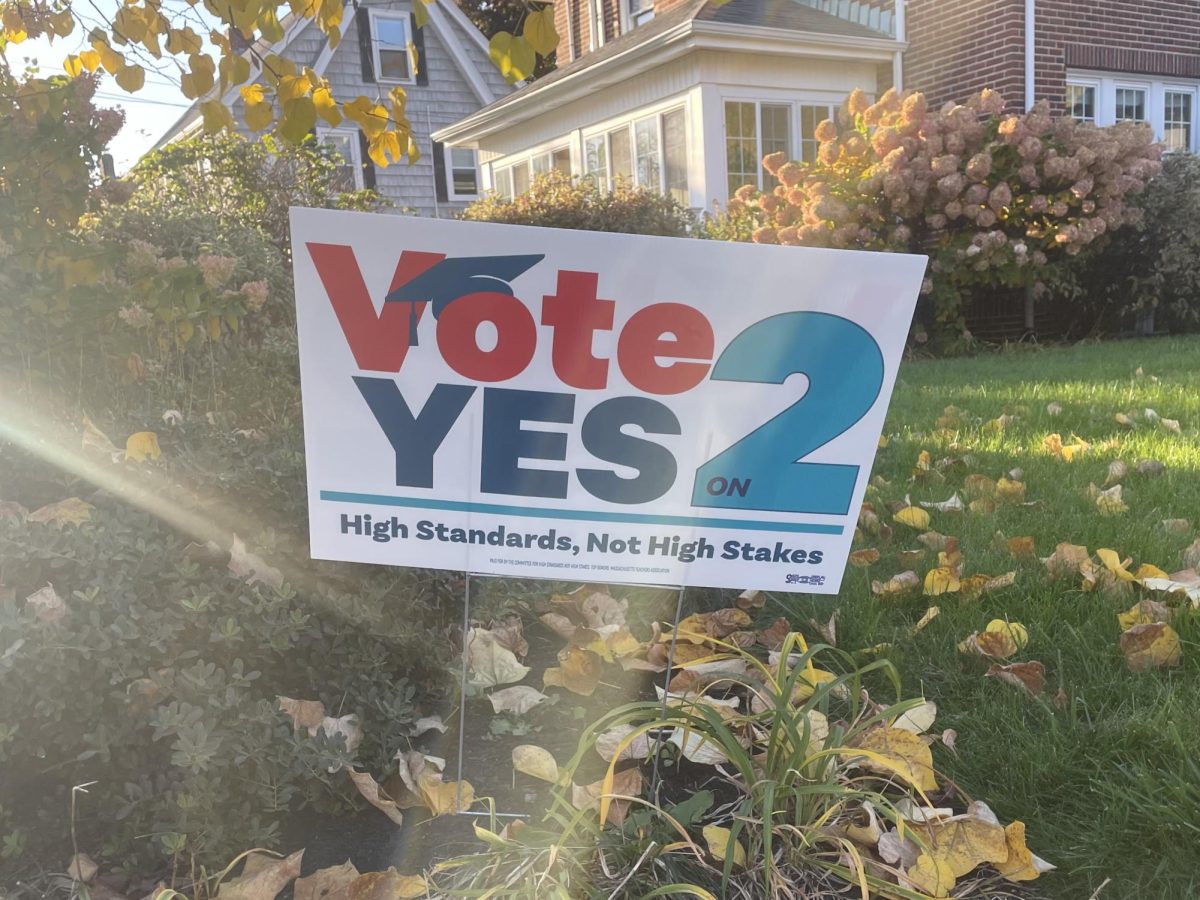






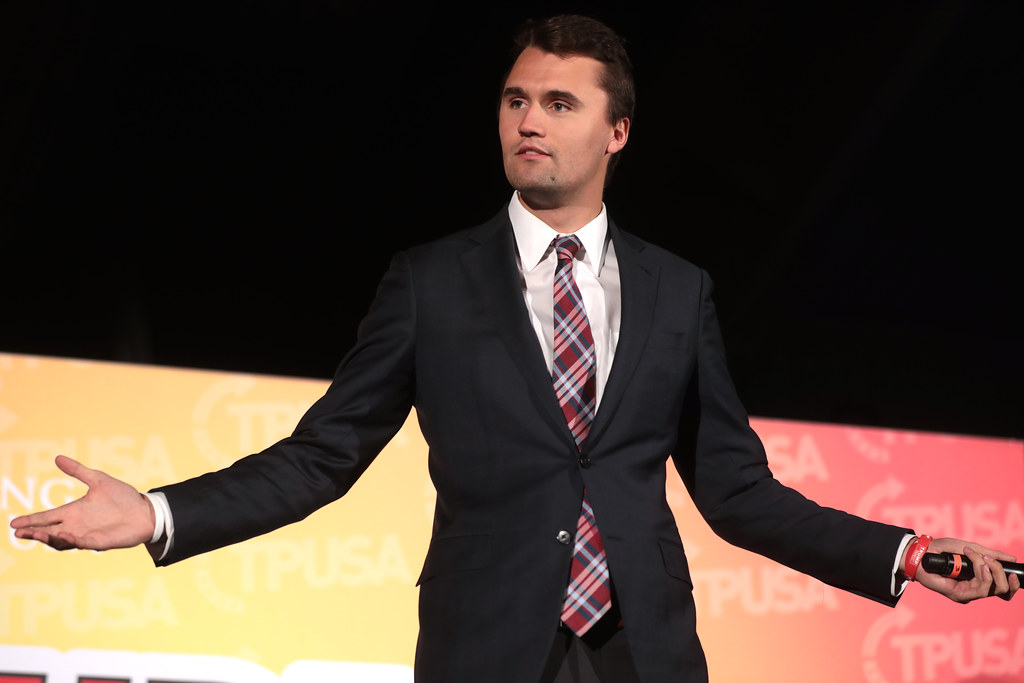




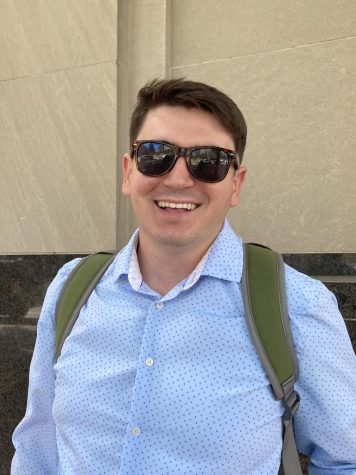
David Houde • Apr 17, 2020 at 8:32 am
I support a candidate that will bring back proposition 2 1/2 rent control needs to be implemented. Rents have been out of control,and no politician is doing anything about it! The politicians keep getting from these special interest groups, while most people struggle to pay the rent!!